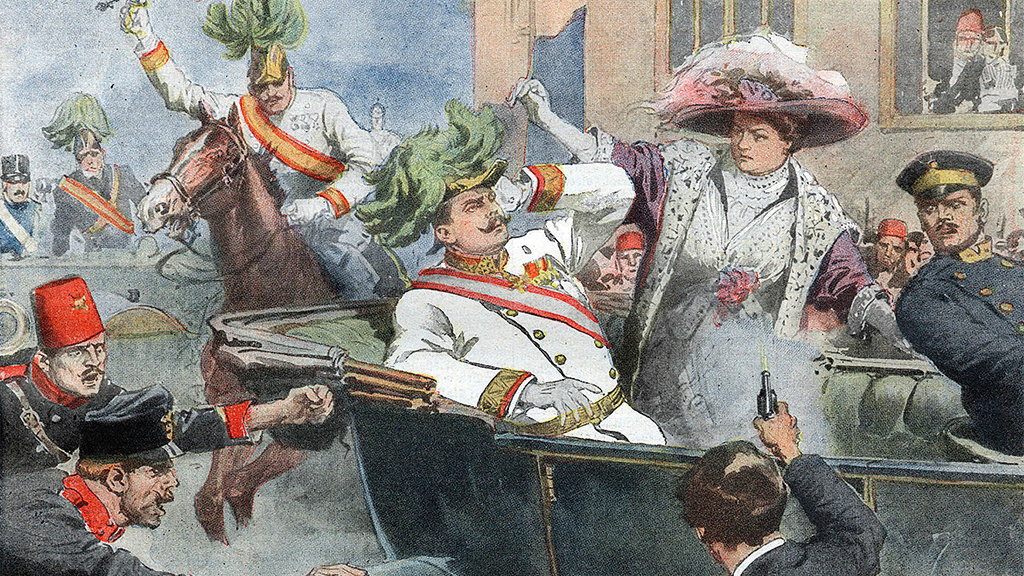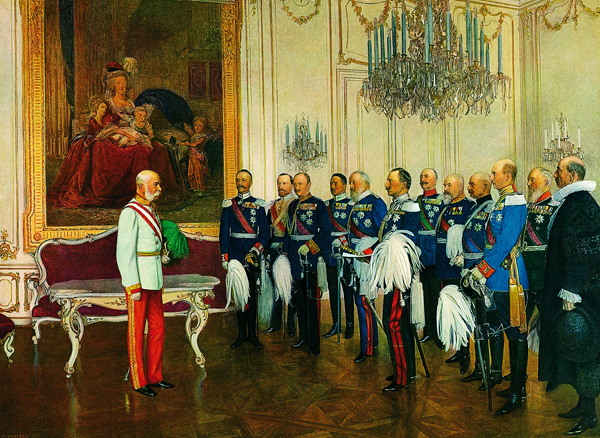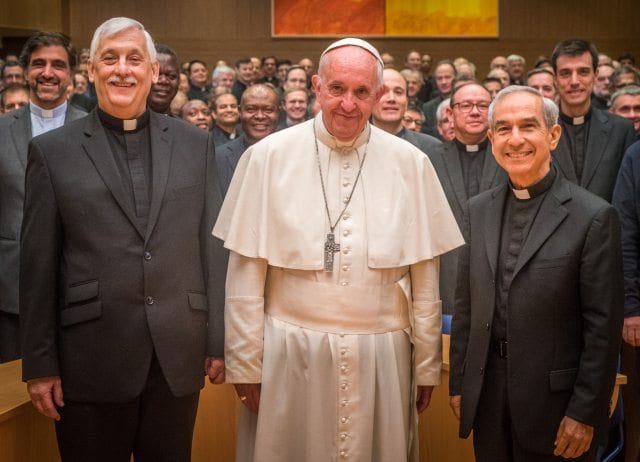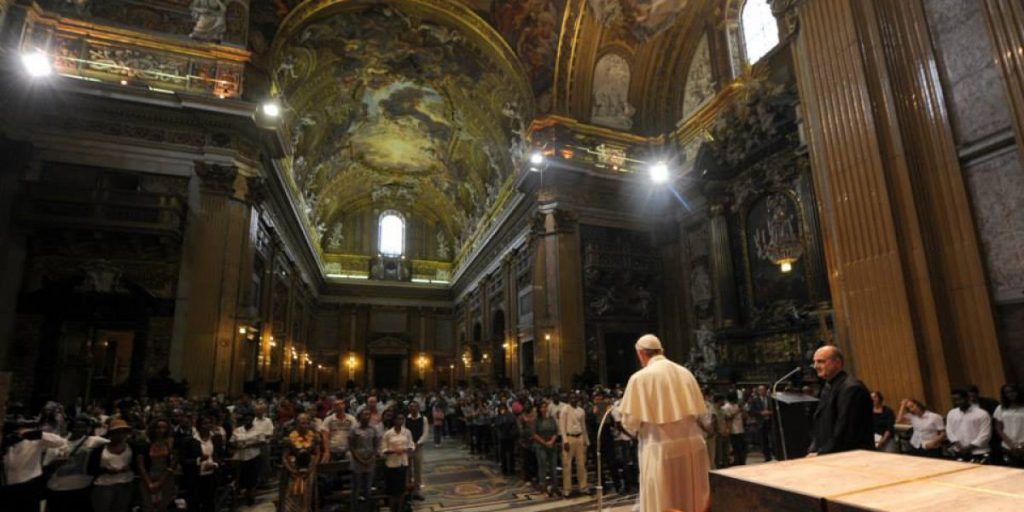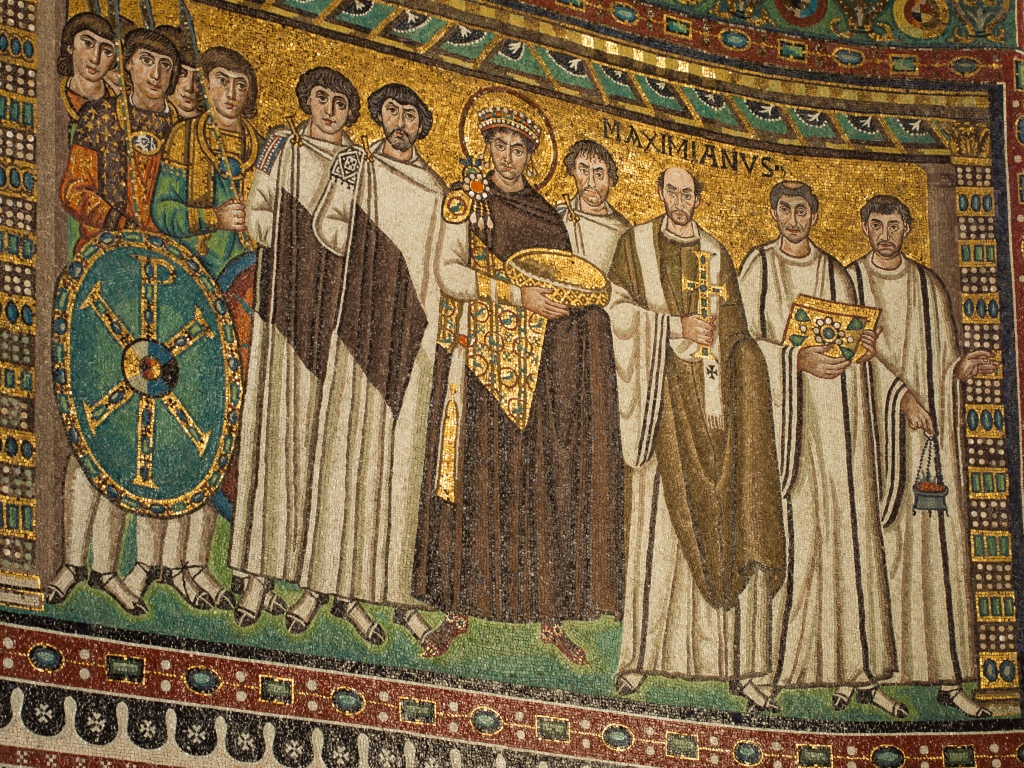Or why I defended Pope Benedict XVI in 2006 against the thoughtlessly irascible Muslims
When a Muslim writes an Obituary for the Catholic Church’s sole Pope Emeritus…

Table of Contents
I. From Joseph Ratzinger to Pope Benedict XVI
II. The theoretical concerns of an intellectual Pope
III. Benedict XVI: A Pope against violence and wars
IV. Manuel II Palaeologus and the Eastern Roman Empire between the Muslim Ottoman brethren and the Anti-Christian Roman enemies
V. The unknown (?) Turkic mystic interlocutor and the Islamic centers of science and reason that Benedict XVI ignored
VI. Excerpt from Benedict XVI’s lecture given on the 12th September at the University of Regensburg under title ‘Faith, Reason and the University–Memories and Reflections’
VII. The problems of the academic-theological background of Benedict XVI’s lecture
VIII. Benedict XVI’s biased approach, theological mistakes, intellectual oversights and historical misinterpretations
IX. The lecture’s most controversial point
X. The educational-academic-intellectual misery and the political ordeal of today’s Muslim states
Of all the Roman popes who resigned the only to be called ‘Pope Emeritus’ was Joseph Ratzinger Pope Benedict XVI (also known in German as Prof. Dr. Papst), who passed away on 31st December 2022, thus sealing the circle of world figures and heads of states whose life ended last year. As a matter of fact, although being a head state, a pope does not abdicate; he renounces to his ministry (renuntiatio).
Due to lack of documentation, conflicting sources or confusing circumstances, we do not have conclusive evidence as regards the purported resignations of the popes St. Pontian (235), Marcellinus (304), Liberius (366), John XVIII (1009) and Sylvester (105). That is why historical certainty exists only with respect to the ‘papal renunciation’ of six pontiffs; three of them bore the papal name of ‘Benedict’. The brief list includes therefore the following bishops of Rome: Benedict V (964), Benedict IX (deposed in 1044, bribed to resign in 1045, and resigned in 1048), Gregory VI (1046), St Celestine (1294), Gregory XII (1415) and Benedict XVI (2013).
I. From Joseph Ratzinger to Pope Benedict XVI
Benedict XVI (18 April 1927 – 31 December 2022) was seven (7) years younger than his predecessor John Paul II (1920-2005), but passed away seventeen (17) years after the Polish pope’s death; already on the 4th September 2020, Benedict XVI would have been declared as the oldest pope in history, had he not resigned seven (7) years earlier. Only Leo XIII died 93, back in 1903. As a matter of fact, Benedict XVI outlived all the people who were elected to the Roman See.
Benedict XVI’s papacy lasted slightly less than eight (8) years (19 April 2005 – 28 February 2013). Before being elected as pope, Cardinal Ratzinger was for almost a quarter century (1981-2005) the prefect of the Congregation for the Doctrine of the Faith, which was the formal continuation of the Office of the Holy Inquisition, and therefore one of the most important sections (‘dicasteries’; from the Ancient Greek term ‘dikasterion’, i.e. ‘court of law’) of the Roman administration (‘Curia’).
A major step toward this position was his appointment as archbishop of Munich for four years (1977-1981); Bavaria has always been a Catholic heavyweight, and in this regard, it is easy to recall the earlier example of Eugenio Pacelli (the later pope Pius XII), who was nuncio to Bavaria (and therefore to the German Empire), in Munich, from 1917 to 1920, and then to Germany, before being elected to the Roman See (in 1939). Before having a meteoric rise in the Catholic hierarchy, Ratzinger made an excellent scholar and a distinct professor of dogmatic theology, while also being a priest. His philosophical dissertation was about St. Augustine and his habilitation concerned Bonaventure, a Franciscan scholastic theologian and cardinal of the 13th c.
II. The theoretical concerns of an intellectual Pope
During his ministry, very early, Benedict XVI stood up and showed his teeth; when I noticed his formidable outburst against the ‘dictatorship of relativism’, I realized that the German pope would be essentially superior to his Polish predecessor. Only in June 2005, so just two months after his election, he defined relativism as “the main obstacle to the task of education”, directing a tremendous attack against the evilness of ego and portraying selfishness as a “self-limitation of reason”.
In fact, there cannot be more devastating attack from a supreme religious authority against the evilness of Anglo-Zionism and the rotten, putrefied society that these criminals diffuse worldwide by means of infiltration, corruption, mendacity, and simulation. Soon afterwards, while speaking in Marienfeld (Cologne), Benedict XVI attacked ferociously all the pathetic ideologies which indiscriminately enslave humans from all spiritual and cultural backgrounds. He said: “absolutizing what is not absolute but relative is called totalitarianism”. This is a detrimental rejection of Talmudic Judaism, Zohar Kabbalah, and Anglo-Zionism.
It was in the summer 2005 that I first realized that I should study closer the pre-papal past of the Roman Pontiff whom St Malachy’s illustrious Prophecy of the Popes (12th c.) described as ‘Gloria olivae’ (the Glory of the olive). I contacted several friends in Germany, who extensively updated me as regards his academic publications, also dispatching to me some of them. At the time, I noticed that my Christian friends already used to question a certain number of Cardinal Ratzinger’s positions.
But, contrarily to them, I personally found his prediction about the eventuality of Buddhism becoming the principal ‘enemy’ of the Catholic Church as quite plausible. My friends were absolutely astounded, and then I had to narrate and explain to them the deliberately concealed story of the Christian-Islamic-Confucian alliance against the Buddhist terrorism of the Dzungar Khanate (1634-1755); actually, it took many Kazakh-Dzungar wars (1643-1756), successive wars between Qing China and the Dzungar Khanate (1687-1757), and even an alliance with the Russian Empire in order to successfully oppose the ferocious Buddhist extremist threat.
Finally, the extraordinary ordeal of North Asia {a vast area comprising lands of today’s Eastern Kazakhstan, Russia (Central Siberia), Northwestern and Western China (Eastern Turkestan/Xinjiang and Tibet) and Western Mongolia} ended up with the systematic genocide of the extremist Buddhist Dzungars (1755-1758) that the Chinese had to undertake because there was no other way to terminate once forever the most fanatic regime that ever existed in Asia.
Disoriented, ignorant, confused and gullible, most of the people today fail to clearly understand how easily Buddhism can turn a peaceful society into a fanatic realm of lunatic extremists. The hypothetically innocent adhesion of several fake Freemasonic lodges of the West to Buddhism and the seemingly harmless acceptance of Buddhist principles and values by these ignorant fools can end up in the formation of vicious and terrorist organizations that will give to their members and initiates the absurd order and task to indiscriminately kill all of their opponents. But Cardinal Ratzinger had prudently discerned the existence of a dangerous source of spiritual narcissism in Buddhism.
III. Benedict XVI: A Pope against violence and wars
To me, this foresight was a convincing proof that Benedict XVI was truly ‘Gloria olivae’; but this would be troublesome news! In a period of proxy wars, unrestrained iniquity, and outrageous inhumanity, a perspicacious, cordial, and benevolent pope in Rome would surely be an encumbering person to many villainous rascals, i.e. the likes of Tony Blair, George W. Bush, Nicolas Sarkozy, and many others so-called ‘leaders’. The reason for this assessment of the situation is simple: no one wants a powerful pacifier at a time more wars are planned.
At the time, it was ostensible to all that a fake confrontation between the world’s Muslims and Christians was underway (notably after the notorious 9/11 events); for this reason, I expected Benedict XVI to make a rather benevolent statement that evil forces would immediately misinterpret, while also falsely accusing the pacifist Pope and absurdly turning the uneducated and ignorant mob of many countries against the Catholic Church.
This is the foolish plan of the Anglo-Zionist lobby, which has long served as puppets of the Jesuits, corrupting the entire Muslim world over the past 250 years by means of intellectual, educational, academic, scientific, cultural, economic, military and political colonialism. These idiotic puppets, which have no idea who their true and real masters are, imagine that, by creating an unprecedented havoc in Europe, they harm the worldwide interests of the Jesuits; but they fail to properly realize that this evil society, which early turned against Benedict XVI, has already shifted its focus onto China. Why the apostate Anglo-Zionist Freemasonic lodge would act in this manner against Benedict XVI is easy to assess; the Roman pontiff whose episcopal motto was ‘Cooperatores Veritatis’ (‘Co-workers of the Truth’) would apparently try to prevent the long-prepared fake war between the Muslims and the Christians.
IV. Manuel II Palaeologus and the Eastern Roman Empire between the Muslim Ottoman brethren and the Anti-Christian Roman enemies
And this is what truly happened in the middle of September 2006; on the 12th September, Benedict XVI delivered a lecture at the University of Regensburg in Germany; the title was ‘Glaube, Vernunft und Universität – Erinnerungen und Reflexionen’ (‘Faith, Reason and the University – Memories and Reflections’). In the beginning of the lecture, Prof. Dr. Ratzinger eclipsed Pope Benedict XVI, as the one-time professor persisted on his concept of ‘faith’, “which theologians seek to correlate with reason as a whole”, as he said. In a most rationalistic approach (for which he had been known for several decades as a renowned Catholic theologian), in an argumentation reflecting views certainly typical of Francis of Assisi and of Aristotle but emphatically alien to Jesus, Benedict XVI attempted to portray an ahistorical Christianity and to describe the Catholic faith as the religion of the Reason.
At an early point of the lecture, Benedict XVI referred to a discussion that the Eastern Roman Emperor Manuel II Palaeologus (or Palaiologos; Μανουήλ Παλαιολόγος; 1350-1425; reigned after 1391) had with an erudite Turkic scholar (indiscriminately but mistakenly called by all Eastern Roman authors at the time as ‘Persian’) most probably around the end of 1390 or the first months of 1391, when he was hostage at the Ottoman court of Bayezid I. In the historical text, it is stated that the location was ‘Ancyra of Galatia’ (i.e. Ankara).
This Eastern Roman Emperor was indeed a very controversial historical figure; although undeniably an erudite ruler, a bold diplomat, and a reputable soldier, he first made agreements with the Ottomans and delivered to them the last Eastern Roman city in Anatolia (Philadelphia; today’s Alaşehir, ca. 140 km east of Izmir / Smyrna) and then, after he took control of his ailing kingdom thanks to the sultan, he escaped the protracted siege of Constantinople (1391-1402) only to travel to various Western European kingdoms and ask the help of those rather reluctant monarchs (1399-1403).
At the time, all the Christian Orthodox populations, either living in the Ottoman sultanate or residing in the declined Eastern Roman Empire, were deeply divided into two groups, namely those who preferred to be ruled by Muslims (because they rejected the pseudo-Christian fallacy, evilness and iniquity of the Roman pope) and the fervent supporters of a Latin (: Western European) control over Constantinople (viewed as the only way for them to prevent the Ottoman rule); the former formed the majority and were called Anthenotikoi, i.e. ‘against the union’ (: of the Orthodox Church with the Catholics), whereas the latter constituted a minority group and were named ‘Enotikoi’ (‘those in favor of the union of the two churches’).
V. The unknown (?) Turkic mystic interlocutor and the Islamic centers of science and reason that Benedict XVI ignored
Manuel II Palaeologus’ text has little theological value in itself; however, its historical value is great. It reveals how weak both interlocutors were at the intellectual, cultural and spiritual levels, how little they knew one another, and how poorly informed they were about their own and their interlocutor’s past, heritage, religion and spirituality. If we have even a brief look at it, we will immediately realize that the level is far lower than that attested during similar encounters in 8th- 9th c. Baghdad, 10th c. Umayyad Andalusia, Fatimid Cairo, 13th c. Maragheh (where the world’s leading observatory was built) or 14th c. Samarqand, the Timurid capital.
It was absolutely clear at the time of Manuel II Palaeologus and Bayezid I that neither Constantinople nor Bursa (Προύσα / Prousa; not anymore the Ottoman capital after 1363, but still the most important city of the sultanate) could compete with the great centers of Islamic science civilization which were located in Iran and Central Asia. That’s why Gregory Chioniades, the illustrious Eastern Roman bishop, astronomer, and erudite scholar who was the head of the Orthodox diocese of Tabriz, studied in Maragheh under the guidance of his tutor and mentor, Shamsaddin al Bukhari (one of the most illustrious students of Nasir el-Din al Tusi, who was the founder of the Maragheh Observatory), before building an observatory in Trabzon (Trebizond) and becoming the teacher of Manuel Bryennios, another famous Eastern Roman scholar.
The text of the Dialogues must have been written several years after the conversation took place, most probably when the traveling emperor and diplomat spent four years in Western Europe. For reasons unknown to us, the erudite emperor did not mention the name of his interlocutor, although this was certainly known to him; if we take into consideration that he was traveling to other kingdoms, we can somehow guess a plausible reason. His courtiers and royal scribes may have translated the text partly into Latin and given copies of the ‘dialogues’ to various kings, marshals, chroniclers, and other dignitaries. If this was the case, the traveling emperor would not probably want to offer insights into the Ottoman court and the influential religious authorities around the sultan.
Alternatively, the ‘unknown’ interlocutor may well have been Amir Sultan (born as Mohamed bin Ali; also known as Shamsuddin Al-Bukhari; 1368-1429) himself, i.e. none else than an important Turanian mystic from Vobkent (near Bukhara in today’s Uzbekistan), who got married with Bayezid I’s daughter Hundi Fatema Sultan Hatun. Amir Sultan had advised the sultan not to turn against Timur; had the foolish sultan heeded to his son-in-law’s wise advice, he would not have been defeated so shamefully.
Benedict XVI made a very biased use of the historical text; he selected an excerpt of Manuel II Palaeologus’ response to his interlocutor in order to differentiate between Christianity as the religion of Reason and Islam as the religion of Violence. Even worse, he referred to a controversial, biased and rancorous historian of Lebanese origin, the notorious Prof. Theodore Khoury (born in 1930), who spent his useless life to write sophisticated diatribes, mildly formulated forgeries, and deliberate distortions of the historical truth in order to satisfy his rancor and depict the historical past according to his absurd political analysis. Almost every sentence written Prof. Khoury about the Eastern Roman Empire and the Islamic Caliphate is maliciously false.
All the same, it was certainly Benedict XVI’s absolute right to be academically, intellectually and historically wrong. The main problem was that the paranoid reaction against him was not expressed at the academic and intellectual levels, but at the profane ground of international politics. Even worse, it was not started by Muslims but by the criminal Anglo-Zionist mafia and the disreputable mainstream mass media, the likes of the BBC, Al Jazeera (Qatari is only the façade of it), etc.
I will now republish (in bold and italics) a sizeable (600-word) excerpt of the papal lecture that contains the contentious excerpt, also adding the notes to the text. The link to the Vatican’s website page is available below. I will comment first on the lecture and the selected part of Manuel II Palaeologus’ text and then on the absurd Muslim reaction.
VI. Excerpt from Benedict XVI’s lecture given on the 12th September at the University of Regensburg under title ‘Faith, Reason and the University–Memories and Reflections’
I was reminded of all this recently, when I read the edition by Professor Theodore Khoury (Münster) of part of the dialogue carried on – perhaps in 1391 in the winter barracks near Ankara – by the erudite Byzantine emperor Manuel II Paleologus and an educated Persian on the subject of Christianity and Islam, and the truth of both.[1] It was presumably the emperor himself who set down this dialogue, during the siege of Constantinople between 1394 and 1402; and this would explain why his arguments are given in greater detail than those of his Persian interlocutor.[2] The dialogue ranges widely over the structures of faith contained in the Bible and in the Qur’an, and deals especially with the image of God and of man, while necessarily returning repeatedly to the relationship between – as they were called – three “Laws” or “rules of life”: the Old Testament, the New Testament and the Qur’an. It is not my intention to discuss this question in the present lecture; here I would like to discuss only one point – itself rather marginal to the dialogue as a whole – which, in the context of the issue of “faith and reason”, I found interesting and which can serve as the starting-point for my reflections on this issue.
In the seventh conversation (διάλεξις – controversy) edited by Professor Khoury, the emperor touches on the theme of the holy war. The emperor must have known that surah 2, 256 reads: “There is no compulsion in religion”. According to some of the experts, this is probably one of the suras of the early period, when Mohammed was still powerless and under threat. But naturally the emperor also knew the instructions, developed later and recorded in the Qur’an, concerning holy war. Without descending to details, such as the difference in treatment accorded to those who have the “Book” and the “infidels”, he addresses his interlocutor with a startling brusqueness, a brusqueness that we find unacceptable, on the central question about the relationship between religion and violence in general, saying: “Show me just what Mohammed brought that was new, and there you will find things only evil and inhuman, such as his command to spread by the sword the faith he preached.”[3] The emperor, after having expressed himself so forcefully, goes on to explain in detail the reasons why spreading the faith through violence is something unreasonable. Violence is incompatible with the nature of God and the nature of the soul. “God”, he says, “is not pleased by blood – and not acting reasonably (σὺν λόγω) is contrary to God’s nature. Faith is born of the soul, not the body. Whoever would lead someone to faith needs the ability to speak well and to reason properly, without violence and threats… To convince a reasonable soul, one does not need a strong arm, or weapons of any kind, or any other means of threatening a person with death…”.[4]
The decisive statement in this argument against violent conversion is this: not to act in accordance with reason is contrary to God’s nature.[5] The editor, Theodore Khoury, observes: For the emperor, as a Byzantine shaped by Greek philosophy, this statement is self-evident. But for Muslim teaching, God is absolutely transcendent. His will is not bound up with any of our categories, even that of rationality.[6] Here Khoury quotes a work of the noted French Islamist R. Arnaldez, who points out that Ibn Hazm went so far as to state that God is not bound even by his own word, and that nothing would oblige him to reveal the truth to us. Were it God’s will, we would even have to practice idolatry.[7]
Notes 1 to 7 (out of 13)
[1] Of the total number of 26 conversations (διάλεξις – Khoury translates this as “controversy”) in the dialogue (“Entretien”), T. Khoury published the 7th “controversy” with footnotes and an extensive introduction on the origin of the text, on the manuscript tradition and on the structure of the dialogue, together with brief summaries of the “controversies” not included in the edition; the Greek text is accompanied by a French translation: “Manuel II Paléologue, Entretiens avec un Musulman. 7e Controverse”, Sources Chrétiennes n. 115, Paris 1966. In the meantime, Karl Förstel published in Corpus Islamico-Christianum (Series Graeca ed. A. T. Khoury and R. Glei) an edition of the text in Greek and German with commentary: “Manuel II. Palaiologus, Dialoge mit einem Muslim”, 3 vols., Würzburg-Altenberge 1993-1996. As early as 1966, E. Trapp had published the Greek text with an introduction as vol. II of Wiener byzantinische Studien. I shall be quoting from Khoury’s edition.
[2] On the origin and redaction of the dialogue, cf. Khoury, pp. 22-29; extensive comments in this regard can also be found in the editions of Förstel and Trapp.
[3] Controversy VII, 2 c: Khoury, pp. 142-143; Förstel, vol. I, VII. Dialog 1.5, pp. 240-241. In the Muslim world, this quotation has unfortunately been taken as an expression of my personal position, thus arousing understandable indignation. I hope that the reader of my text can see immediately that this sentence does not express my personal view of the Qur’an, for which I have the respect due to the holy book of a great religion. In quoting the text of the Emperor Manuel II, I intended solely to draw out the essential relationship between faith and reason. On this point I am in agreement with Manuel II, but without endorsing his polemic.
[4] Controversy VII, 3 b–c: Khoury, pp. 144-145; Förstel vol. I, VII. Dialog 1.6, pp. 240-243.
[5] It was purely for the sake of this statement that I quoted the dialogue between Manuel and his Persian interlocutor. In this statement the theme of my subsequent reflections emerges.
[6] Cf. Khoury, p. 144, n. 1.
[7] R. Arnaldez, Grammaire et théologie chez Ibn Hazm de Cordoue, Paris 1956, p. 13; cf. Khoury, p. 144. The fact that comparable positions exist in the theology of the late Middle Ages will appear later in my discourse.
VII. The problems of the academic-theological background of Benedict XVI’s lecture
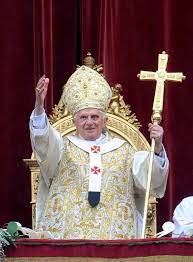
It is my conviction that Benedict XVI fell victim to the quite typical theological assumptions that Prof. Dr. Ratzinger had studied and taught for decades. However, the problem is not limited to the circle of the faculties of Theology and to Christian Theology as a modern discipline; it is far wider. The same troublesome situation permeates all the disciplines of Humanities and, even worse, the quasi-totality of the modern sciences as they started in Renaissance. The problem goes well beyond the limits of academic research and intellectual consideration; it has to do with the degenerate, rotten and useless mental abilities and capacities of the Western so-called scholars, researchers and academics. The description of the problem is rather brief, but its nature is truly ominous.
Instead of perceiving, understanding, analyzing and representing the ‘Other’ in its own terms, conditions and essence and as per its own values, virtues and world conceptualization, the modern Western European scholars, researchers, explorers and specialists view, perceive, attempt to understand, and seek to analyze the ‘Other’ in their own terms, conditions and essence and as per their own values, virtues and world conceptualization. Due to this sick effort and unprecedented aberration, the Western so-called scholars and researchers view the ‘Other’ through their eyes, thus projecting onto the ‘Other’ their view of it. Consequently, they do not and actually they cannot learn it, let alone know, understand and represent it. Their attitude is inane, autistic and degenerate. It is however quite interesting and truly bizarre that the Western European natural scientists do not proceed in this manner, but fully assess the condition of the object of their study in a rather objective manner.
In fact, the Western disciplines of the Humanities, despite the enormous collection and publication of study materials, sources and overall documentation, are a useless distortion. Considered objectively, the Western scientific endeavor in its entirety is a monumental nothingness; it is not only a preconceived conclusion. It is a resolute determination not to ‘see’ the ‘Other’ as it truly exists, as its constituent parts obviously encapsulate its contents, and as the available documentation reveals it. In other words, it consists in a premeditated and resolute rejection of the Truth; it is intellectually barren, morally evil, and spiritually nihilist. The topic obviously exceeds by far the limits of the present obituary, but I had to mention it in order to offer the proper context.
It is therefore difficult to identify the real reason for the magnitude of the Western scholarly endeavor, since the conclusions existed in the minds of the explorers and the academics already before the documentation was gathered, analyzed, studied, and represented. How important is it therefore to publish the unpublished material (totaling more than 100000 manuscripts of Islamic times and more than one million of cuneiform tablets from Ancient Mesopotamia, Iran, Canaan and Anatolia – only to give an idea to the non-specialized readers), if the evil Western scholars and the gullible foreign students enrolled in Western institutions (to the detriment of their own countries and nations) are going to repeat and reproduce the same absurd Western mentality of viewing an Ancient Sumerian, an Ancient Assyrian, an Ancient Egyptian or a Muslim author through their own eyes and of projecting onto the ancient author the invalid and useless measures, values, terms and world views of the modern Western world?
As it can be easily understood, the problem is not with Christian Theology, but with all the disciplines of the Humanities. So, the problem is not only that a great Muslim scholar and erudite mystic like Ibn Hazm was viewed by Benedict XVI and Western theologians through the distorting lenses of their ‘science’, being not evaluated as per the correct measures, values and terms of his own Islamic environment, background and civilization. The same problem appears in an even worse form, when Ancient Egyptian, Sumerian, Assyrian-Babylonian, Hittite, Iranian and other high priests, spiritual masters, transcendental potentates, sacerdotal writers, and unequaled scientists are again evaluated as per the invalid and useless criteria of Benedict XVI, of all the Western theologians, and of all the modern European and American academics.
What post-Renaissance popes, theologians, academics, scholars and intellectuals fail to understand is very simple; their ‘world’ ( i.e. the world of the Western Intellect and Science, which was first fabricated in the 15th and the 16th c. and later enhanced progressively down to our days) in not Christian, is not human, and is not real. It is their own delusion, their own invalid abstraction, their abject paranoia, and their own sin for which first they will atrociously disappear from the surface of the Earth (like every anomalous entity) and then flagrantly perish in Hell.
Their dangling system does not hold; they produced it in blood and in blood it will end. Modern sciences constitute a counter-productive endeavor and an aberration that will terminally absorb the entire world into the absolute nothingness, because these evil systems were instituted out of arbitrary bogus-interpretations of the past, peremptory self-identification, deliberate and prejudicial ignorance, as well as an unprecedented ulcerous hatred of the ‘Other’, i.e. of every ‘Other’.
The foolish Western European academic-intellectual establishment failed to realize that it is absolutely preposterous to extrapolate later and corrupt standards to earlier and superior civilizations; in fact, it is impossible. By trying to do it, you depart from the real world only to live in your delusion, which sooner or later will inevitably have a tragic end. Consequently, the Western European scholars’ ‘classics’ are not classics; their reason is an obsession; their language and jargon are hallucinatory, whereas their notions are conjectural. Their abstract concepts are the manifestation of Non-Being.
VIII. Benedict XVI’s biased approach, theological mistakes, intellectual oversights and historical misinterpretations
Benedict XVI’s understanding of the Eastern Roman Empire was fictional. When examining the sources, he retained what he liked, what pleased him, and what was beneficial to his preconceived ideas and thoughts. In fact, Prof. Dr. Papst did not truly understand what Manuel II Palaeologus said to his Turkic interlocutor, and even worse, he failed to assess the enormous distance that separated the early 15th c. Eastern Roman (not ‘Byzantine’: this is a fake appellation too) Emperor from his illustrious predecessors before 800 or 900 years (the likes of Heraclius and Justinian I) in terms of Christian Roman imperial ideology, theological acumen, jurisprudential perspicacity, intellectual resourcefulness, and spiritual forcefulness. Benedict XVI did not want to accept that with time the Christian doctrine, theology and spirituality had weakened.
What was Ratzinger’s mistake? First, he erroneously viewed Manuel II Palaeologus as ‘his’ (as identical with the papal doctrine), by projecting his modern Catholic mindset and convictions onto the Christian Orthodox Eastern Roman Emperor’s mind, mentality and faith. He took the ‘Dialogues’ at face value whereas the text may have been written not as a declaration of faith but as a diplomatic document in order to convince the rather uneducated Western European monarchs that the traveling ‘basileus’ (βασιλεύς) visited during the period 1399-1403.
Second, he distorted the ‘dialogue’, presenting it in a polarized form. Benedict XVI actually depicted a fraternal conversation as a frontal opposition; unfortunately, there is nothing in the historical text to insinuate this possibility. As I already said, it is quite possible that the moderate, wise, but desperate Eastern Roman Emperor may have discussed with someone married to a female descendant of the great mystic Jalal al-Din Rumi (namely Bayezid’s son-in-law, adviser and mystic Emir Sultan). Why on Earth did the renowned theologian Ratzinger attempt to stage manage a theological conflict in the place of a most peaceful, friendly and fraternal exchange of ideas?
This is easy to explain; it has to do with the absolutely Manichaean structure of thought that was first diffused among the Western Fathers of the Christian Church by St Augustine (in the early 5th c.). As method of theological argumentation, it was first effectively contained, and it remained rather marginal within the Roman Church as long as the practice introduced by Justinian I (537) lasted (until 752) and all the popes of Rome had to be selected and approved personally by the Eastern Roman Emperor. After this moment and, more particularly, after the two Schisms (867 and 1054), the Manichaean system of thinking prevailed in Rome; finally, it culminated after the Renaissance.
Third, Benedict XVI tried to depict the early 15th c. erudite interlocutor of the then hostage Manuel II Palaeologus as a modern Muslim and a Jihadist. This is the repetition of the same mistakes that he made as regards the intellectual Eastern Roman Emperor. In other words, he projected onto the ‘unknown’, 15th c. Muslim mystic his own personal view of an Islamist or Islamic fundamentalist. Similarly, by bulldozing time in order to impose his wrong perception of Islam, he fully misled the audience. As a matter of fact, Islam constitutes a vast universe that Prof. Dr. Papst never studied, never understood, and never fathomed in its true dimensions.
In fact, as it happened in the case of the Eastern Roman Emperor, his interlocutor was intellectually weaker and spiritually lower than the great figures of Islamic spirituality, science, wisdom, literature and intuition, the likes of Nasir al-Din al-Tusi, Al Qurtubi, Mohyi el-Din Ibn Arabi, Ahmed Yasawi, Al Biruni, Ferdowsi, Al Farabi, Tabari, etc., who preceded him by 150 to 500 years. But Benedict XVI did not want to accept that with time the Islamic doctrine, theology and spirituality had weakened.
The reason for this distortion is easy to grasp; the Manichaean system of thinking needs terminal, crystallized forms of items that do not change; then, it is convenient for the Western European abusers of the Manichaean spirit to fully implement the deceitful setting of fake contrasts and false dilemmas. But the 15th c. decayed Eastern Roman Orthodoxy and decadent Islam are real historical entities that enable every explorer to encounter the multitude of forms, the ups and downs, the evolution of cults, the transformation of faiths, and the gradual loss of the initially genuine Moral and vibrant Spirituality. This reality is very embarrassing to those who want to teach their unfortunate students on a calamitous black & white background (or floor).
All the books and articles of his friend, Prof. Theodore Khoury, proved to be totally useless and worthless for the Catholic theologian Ratzinger, exactly because the Lebanese specialist never wrote a sentence in order to truly represent the historical truth about Islam, but he always elaborated his texts in a way to justify and confirm his preconceived ideas. Prof. Khoury’s Islam is a delusional entity, something like the artificial humans of our times. Unfortunately, not one Western Islamologist realized that Islam, at the antipodes of the Roman Catholic doctrine, has an extremely limited dogmatic part, a minimal cult, and no heresies. Any opposite opinion belongs to liars, forgers and falsifiers. As a matter of fact, today’s distorted representation of Islam is simply the result of Western colonialism. All over the world, whatever people hear or believe about the religion preached by Prophet Muhammad is not the true, historical, religion of Islam, but the colonially, academically-intellectually, produced Christianization of Islam.
Fourth, in striking contrast to what the theologian Ratzinger pretended through use of this example or case study (i.e. the ‘discussion’), if Benedict XVI shifted his focus to the East, he would find Maragheh in NW Iran (Iranian Azerbaijan) and Samarqand in Central Asia. In those locations (and always for the period concerned), he would certainly find great centers of learning, universities, vast libraries, and enormous observatories, which could make every 15th c. Western European astronomer and mathematician dream. But there he would also find, as I already said, many Muslim, Christian, Buddhist and other scholars working one next to the other without caring about their religious (theological) differences. This situation is very well known to modern Western scholarship, but they viciously and criminally try to permanently conceal it.
This situation was due to the cultural, intellectual, academic, mental and spiritual unity that prevailed among all those erudite scholars. Numerous Western European scholars have published much about Nasir el-Din al Tusi (about whom I already spoke briefly) and also about Ulugh Beg, the world’s greatest astronomer of his time (middle of the 15th c.), who was the grandson of Timur (Tamerlane) and, at the same time, the World History’s most erudite emperor of the last 2500 years. However, post-Renaissance Catholic sectarianism and Western European/North American racism prevented the German pope from being truthful at least once, and also from choosing the right paradigm.
IX. The lecture’s most controversial point
Fifth, if we now go straight to the lecture’s most controversial point and to the quotation’s most fascinating sentence, we will find the question addressed by Manuel II Palaeologus to his erudite Turkic interlocutor; actually, it is rather an exclamation:
– «Show me just what Mohammed brought that was new, and there you will find things only evil and inhuman, such as his command to spread by the sword the faith he preached»!
This interesting excerpt provides indeed the complete confirmation of my earlier assessments as regards the intellectual decay of both, Christian Orthodoxy and Islam, at the time. Apparently, it was not theological acumen what both interlocutors were lacking at the time; it was historical knowledge. Furthermore, historical continuity, religious consciousness, and moral command were also absent in the discussion.
The first series of points that Manuel II Palaeologus’ Muslim interlocutor could have made answering the aforementioned statement would be that Prophet Muhammad, before his death, summoned Ali ibn Abu Taleb and asked him to promise that he would never diffuse the true faith by undertaking wars; furthermore, Islam was diffused peacefully in many lands outside Arabia (Hejaz), notably Yemen, Oman, Somalia, and the Eastern Coast of Africa. In addition, there were many Muslims, who rejected the absurd idea of the Islamic conquests launched by Umar ibn al-Khattab and actually did not participate.
We have also to take into consideration the fact that, in spite of the undeniable reality of the early spread of Islam through invasions, there has always been well-known and sufficient documentation to clearly prove that the Aramaeans of Mesopotamia, Syria and Palestine, the Copts of Egypt, and the Berbers of Africa, although fully preserving their Christian faith, preferred to live under the rule of the Caliphates and overwhelmingly rejected the Eastern Roman imperial administration, because they had been long persecuted by the Constantinopolitan guards due to their Miaphysite (Monophysitic) and/or Nestorian faiths.
On another note, the Eastern Roman Emperor’s Muslim interlocutor could have questioned the overall approach of Manuel II Palaeologus to the topic. In other words, he could have expressed the following objection:
– «What is it good for someone to pretend that he is a follower of Jesus and evoke his mildness, while at the same time violently imposing by the sword the faith that Jesus preached? And what is it more evil and more inhuman than the imposition of a faith in Jesus’ name within the Roman Empire, after so much bloodshed and persecution took place and so many wars were undertaken»?
Last, one must admit that the sentence «Show me just what Mohammed brought that was new!» would have been easily answered by an earlier Muslim mystic of the Golden Era of Islam. Actually, this statement is islamically correct and pertinent. The apparent absence of a spectacular response from the part of Manuel II Palaeologus’ Muslim interlocutor rather generates doubts as regards the true nature of the text. This is so because he could have immediately replied to Bayezid I’s hostage that not one prophet or messenger was sent by God with the purpose of ‘bringing something new’; in fact, all the prophets from Noah to Jonah, from Abraham to Jonah, from Moses to Muhammad, and from Adam to Jesus were dispatched in order to deliver the same message to the humans, namely to return to the correct path and live according to the Will of God.
Related to this point is the following well-known verse of the Quran (ch. 3 – Al Imran, 67): “Abraham was neither a Jew nor a Christian but he was (an) upright (man), a Muslim, and he was not one of the polytheists”. It is therefore odd that a response in this regard is missing at this point.
It is also strange that, at a time of major divisions within Christianity and more particularly among the Christian Orthodox Eastern Romans, the ‘unknown’ imperial interlocutor did not mention the existing divisions among Christians as already stated very clearly, explicitly and repeatedly in the Quran. Examples:
“You are the best community ever raised for humanity—you encourage good, forbid evil, and believe in Allah. Had the People of the Book believed, it would have been better for them. Some of them are faithful, but most are rebellious”. (ch. 3 – Al Imran, 110)
“Yet they are not all alike: there are some among the People of the Book who are upright, who recite Allah’s revelations throughout the night, prostrating in prayer”.
(ch. 3 – Al Imran, 113):
To conclude I would add that elementary knowledge of Roman History, Late Antiquity, and Patristic Philology would be enough for Benedict XVI to know that
– in its effort to impose Christianity on the Roman Empire,
– in its determination to fully eradicate earlier religions, opposite religious sects like the Gnostics, and theological ‘heresies’ like Arianism,
– in its resolve to exterminate other Christian Churches such as the Nestorians and the Miaphysites (Monophysites),
– in its obsession to uproot Christian theological doctrines like Iconoclasm and Paulicianism, and
– in its witch hunt against Manichaeism, …
… the ‘official’ Roman and Constantinopolitan churches committed innumerable crimes and killed a far greater number of victims than those massacred by Muslim invaders on several occurrences during the early Islamic conquests.
So, when did the Christian Church encounter Reason and when did it cease to be ‘unreasonable’ according to the theologian Pope Ratzinger?
One must be very sarcastic to duly respond to those questions: most probably, the Roman Church discovered ‘Reason’ after having killed all of their opponents and the so-called ‘heretics’ whose sole sin was simply to consider and denounce the Roman Church as heretic!
If Benedict XVI forgot to find in the Quran the reason for the Turkic interlocutor’s mild attitude toward the hostage Manuel II Palaeologus, this is a serious oversight for the professor of theology; he should have mentioned the excerpts. In the surah al-Ankabut (‘the Spider’; ch. 29, verse 46), it is stated: “And do not argue with the followers of earlier revelation otherwise than in a most kindly manner”.
Similarly, the German pope failed to delve in Assyriology and in Egyptology to better understand that the Hebrew Bible (just like the New Testament and the Quran) did not bring anything ‘new’ either; before Moses in Egypt and before Abraham in Mesopotamia, there were monotheistic and aniconic trends and traits in the respective religions. The concept of the Messiah is attested in Egypt, in Assyria, and among the Hittites many centuries or rather more than a millennium before Isaiah contextualized it within the small Hebrew kingdom. Both Egypt and Babylon were holy lands long before Moses promised South Canaan to the Ancient Hebrew tribes, whereas the Assyrians were the historically first Chosen People of the Only God and the Assyrian imperial ideology reflected this fact in detail. The Akkadian – Assyrian-Babylonian kings were ’emperors of the universe’ and their rule reflected the ‘kingdom of Heaven’.
If Etana and Ninurta reveal aspects of Assyrian eschatology, Horus was clearly the Egyptian Messiah, who would ultimately vanquish Seth (Satan/Antichrist) at the End of Time in an unprecedented cosmic battle that would usher the mankind into a new era which would be the reconstitution of the originally ideal world and Well-Being (Wser), i.e. Osiris. There is no Cosmogony without Eschatology or Soteriology, and nothing was invented and envisioned by the Hebrews, the Greeks and the Romans that had not previously been better and more solemnly formulated among the Sumerians, the Akkadians – Assyrian-Babylonians, and the Egyptians. There is no such thing as ‘Greco-Roman’ or ‘Greco-Christian’ or’ Greco-Judaic’ civilization. Both, Islam and Christianity are the children of Mesopotamia and Egypt.
And this concludes the case of today’s Catholic theologians, i.e. the likes of Pope Benedict XVI or Theodore Khoury; they have to restart from scratch in order to duly assess the origins and the nature of Christianity before the serpent casts “forth out of his mouth water as a river after the woman, that he may cause her to be carried away by the river”. All the same, it was certainly Prof. Ratzinger’s full right to make as many mistakes as he wanted and to distort any textual reference he happened to mention.
X. The educational-academic-intellectual misery and the political ordeal of today’s Muslim states
Quite contrarily, it was not the right of those who accused him of doing so, because they expanded rather at the political and not at the academic level; this was very hypocritical and shameful. If these politicians, statesmen and diplomats dared speak at the academic level, they would reveal their own ignorance, obscurantism, obsolete educational system, miserable universities, nonexistent intellectual life, and last but not least, disreputable scientific institutions.
The reason for this is simple: not one Muslim country has properly organized departments and faculties endowed with experts capable of reading historical sources in the original texts and specializing in the History of the Eastern Roman Empire, Orthodox Christianity, Christological disputes and Patristic Literature. If a Muslim country had an educational, academic and intellectual establishment similar to that of Spain or Poland, there would surely be serious academic-level objection to Benedict XVI’s lecture. It would take a series of articles to reveal, refute and utterly denounce (not just the mistakes and the oversights but) the distorted approach which is not proper only to the defunct Pope Emeritus but to the entire Western academic establishment; these people would however be academics and intellectuals of a certain caliber. Unfortunately, such specialists do not exist in any Muslim country.
Then, the unrepresentative criminal crooks and gangsters, who rule all the countries of the Muslim world, reacted against Pope Benedict XVI at a very low, political level about a topic that was not political of nature and about which they knew absolutely nothing. In this manner, they humiliated all the Muslims, defamed Islam, ridiculed their own countries, and revealed that they rule failed states. Even worse, they made it very clear that they are the disreputable puppets of their colonial masters, who have systematically forced all the Muslim countries to exactly accept as theirs the fallacy that the Western Orientalists have produced and projected onto them (and in this case, the entirely fake representation of Islam that theologians like Ratzinger, Khoury and many others have fabricated).
If Ratzinger gave this lecture, this is also due to the fact that he knew that he would not face any academic or intellectual level opposition from the concerned countries. This is so because all the execrable puppets, who govern the Muslim world, were put in place by the representatives of the colonial powers. They do not defend their local interests but execute specific orders in order not to allow
– bold explorers, dynamic professors, and impulsive intellectuals to take the lead,
– proper secular education, unbiased scientific methodology, intellectual self-criticism, free judgment, and thinking out of the box to grow,
– faculties and research centers to be established as per the norms of educationally advanced states, and
– intellectual anti-colonial pioneers and anti-Western scholars to demolish the racist Greco-centric dogma that post-Renaissance European universities have intentionally diffused worldwide.
That is why for a Muslim today in Prof. Ratzinger’s lecture the real problem is not his approach or his mistake, but the impermissible bogus academic life and pseudo-educational system of all the Muslim countries. In fact, before fully transforming and duly enhancing their educational and academic systems, Muslim heads of states, prime ministers, ministers and ambassadors have no right to speak. They must first go back to their countries and abolish the darkness of their ridiculous universities; their so-called professors are not professors.
Here you have all the articles that I published at the time in favor of Benedict XVI; the first article was published on the 16th September 2006, only four days after the notorious lecture and only one day after the notorious BBC report, which called the Muslim ambassadors to shout loud:
Related articles published in 2005 and 2013:
About Benedict XVI:
https://www.focus.de/politik/ausland/papst/benedikt-xvi-prof-dr-papst_id_1505077.html
https://en.wikipedia.org/wiki/Papal_renunciation
https://gloria.tv/share/1txNGosD4V3UCWBEP9N3umNbu
https://en.wikipedia.org/wiki/Dicastery_for_the_Doctrine_of_the_Faith
https://en.wikipedia.org/wiki/Inquisition
https://en.wikipedia.org/wiki/Dicastery
https://en.wikipedia.org/wiki/Roman_Catholic_Archdiocese_of_Munich_and_Freising
https://en.wikipedia.org/wiki/List_of_bishops_of_Freising_and_archbishops_of_Munich_and_Freising
https://en.wikipedia.org/wiki/Pope_Pius_XII#Archbishop_and_papal_nuncio
https://en.wikipedia.org/wiki/Apostolic_Nunciature_to_Germany
https://en.wikipedia.org/wiki/Nunciature_of_Eugenio_Pacelli
https://en.wikipedia.org/wiki/Theology_of_Pope_Benedict_XVI
https://en.wikipedia.org/wiki/Prophecy_of_the_Popes
https://www.osservatoreromano.va/en/news/2021-11/ing-047/to-be-cooperatores-veritatis.html
https://en.wikipedia.org/wiki/Pope_Benedict_XVI#Islam
https://en.wikipedia.org/wiki/Pope_Benedict_XVI_and_Islam#Concerning_the_Islam_controversy
https://en.wikipedia.org/wiki/Regensburg_lecture
(audio recording) https://www.horeb.org/xyz/podcast/papstbesuch/2006-09-12_Vortrag_Uni_Regensburg.mp3
15 September 2006: http://news.bbc.co.uk/2/hi/europe/5348456.stm
17 September 2006: http://news.bbc.co.uk/2/hi/europe/5353208.stm
About Manuel II Palaeologus:
https://en.wikipedia.org/wiki/Manuel_II_Palaiologos
https://en.wikipedia.org/wiki/Fall_of_Philadelphia
https://en.wikipedia.org/wiki/Ala%C5%9Fehir
https://www.tertullian.org/fathers/manuel_paleologus_dialogue7_trans.htm
Seventh Dialogue: chapters 1–18 only (of 26 ‘Dialogues’)
https://books.google.ru/books?id=Ax8RAAAAYAAJ&printsec=frontcover&hl=ru#v=onepage&q&f=false (starting page 125)
https://en.wikipedia.org/wiki/Amir_Sultan
https://islamsci.mcgill.ca/RASI/BEA/Shams_al-Din_al-Bukhari_BEA.htm
https://en.wikipedia.org/wiki/Maragheh_observatory#Nasir_al-Din_al-Tusi
https://en.wikipedia.org/wiki/Nasir_al-Din_al-Tusi
https://en.wikipedia.org/wiki/Gregory_Chioniades
https://en.wikipedia.org/wiki/Manuel_Bryennios
https://en.wikipedia.org/wiki/Basileus
About the Dzungar Buddhist extremists:
https://en.wikipedia.org/wiki/Dzungaria
https://en.wikipedia.org/wiki/Dzungar_Khanate
https://en.wikipedia.org/wiki/Dzungar_conquest_of_Altishahr
https://en.wikipedia.org/wiki/Kazakh%E2%80%93Dzungar_Wars
https://en.wikipedia.org/wiki/Dzungar%E2%80%93Qing_Wars
https://en.wikipedia.org/wiki/Dzungar_genocide
————————————
Download the obituary in PDF:

